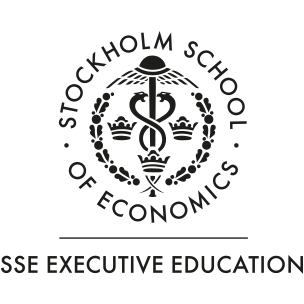“We need more intelligent organizations!”
Philip Runsten holds a Ph.D. in Business Economics and is a visiting researcher at the Stockholm School of Economics Institute for Research (SIR). Together with Andreas Werr, professor of management at SSE, he has written the book Knowledge Integration – On Collective Intelligence in Organizations (Swedish: Kunskapsintegration – om kollektiv intelligens i organisationer). We wanted to know what they really mean by an “intelligent organization.” We posed five questions to Runsten to find out more.
What do you mean by collective intelligence?
“It can mean very different things, from markets to collective behavior on the internet such as Wikipedia. But we mean collective intelligence on a micro level, like when individuals cooperate with each other at a given time and in a given situation. Simply put, collectively intelligent groups stand out because they more successfully use the knowledge available within the group. If we study groups this way, they exhibit a surprisingly high variation in factors that can be linked to intelligence. Studies of management teams, for example, showed a difference of more than 1,500 percent in the level of listening, or rather in the degree of positive affirmation about things that were said. Moreover, they have shown that the proportion of probing questions asked when the group engages in discussion varies by more than 2,000 percent. Not surprisingly, it turns out that the high-performance groups have the highest level of listening and probing questions. They are simply better able to act intelligently when they listen and ask more questions.”
How does an organization become more intelligent?
“All organizations can actually be viewed as the total sum of continuous cooperation and coordination between people. If we view organizations this way, you’ll understand that the average quality of the cooperation or, as we call it, intelligence, plays a crucial role for organizations in terms of how well they succeed in coordinating and applying available knowledge resources. In an organization with high average intelligence in their microsystems, everything works better in practice. You get more done with less effort. You use resources more efficiently. And you develop more elaborate strategies and get better at implementing them in practice. Such an organization is simply more intelligent.”
Is this the insight that is lacking at Swedish companies today?
“Yes, not only at Swedish companies but across the world. Traditionally, we have not thought about microsystems when we manage organizations, but we think in terms of leadership and structures. All organizations are trying to lead and develop through structures, and that’s quite acceptable. The difference, we think, is that we need to highlight the microsystems themselves as a phenomenon, because that is where the organization in practice is “implemented.” Organizations that want to develop themselves can develop strategies for high efficiency in their microsystems. So the interesting thing is that we will highlight new factors for creating effective organizations. The issue is no longer how to organize an efficient process, but rather what it is that gets the process implemented more or less successfully. The microsystem perspective makes it possible for the organization to work with factors that you can’t capture with the structural organizational perspective, which basically analyses the organization as a great machine. So far, we have seen very few examples of organizations that have conscious strategies to ensure high efficiency in their microsystems, such as a conscious relationship strategy.”
You have written the book together with Professor Andreas Werr. How do you complement each other in this area?
“Andreas and I have done research together on this topic since 2006. We have created several studies together, and Andreas has even supervised my thesis. I think we complement each other very well on these topics. I worked in the consulting industry for 18 years before I started writing my thesis. Andreas wrote his thesis about the consulting industry. I have personally worked with or in management and project management in a variety of industries. I have wide experience of what could be called modern Swedish organizations. Andreas is much more academically experienced than I and has mastered the big topics within management and HR. Together, I think we work very dynamically.”
In addition to “Buy our book,” what is your advice to an organization that wants to strive towards a higher collective intelligence?
“I think increased collective intelligence is low-hanging fruit in many organizations. Our experience indicates that almost all people want to work effectively together, and benefit from doing do. The problem is that we don’t share a common idea about what effective knowledge efforts look like. To make a little analogy: If you try to be “good at the game” in a knowledge-intensive group, it can be very difficult to know if your contribution is a good or bad “pass.” If we had a common idea of what the elements of cooperation look like, most groups and individuals themselves would very quickly be able to develop their interactions. I have two pieces of advice to all corporate and organizational executive teams. One: Make the phenomenon of “cooperation” (if you don’t want to call it collective intelligence) an action item in your organization. Something that everyone is expected to work on. It will lead to an increased demand for support and the models for what people should do. Groups will themselves take the initiative for their own development. Two: For it to work, and for the groups to know the direction they’re headed in, you’ve got to start “talking” with your organization in a much more advanced way than is done today. Both Andrew and I think this is the most important factor in collective intelligence. To develop and communicate such a representation is not expensive for an executive team, it’s just leadership. It’s just to begin with what employees actually need to know to be able to make informed and intelligent decisions.”


